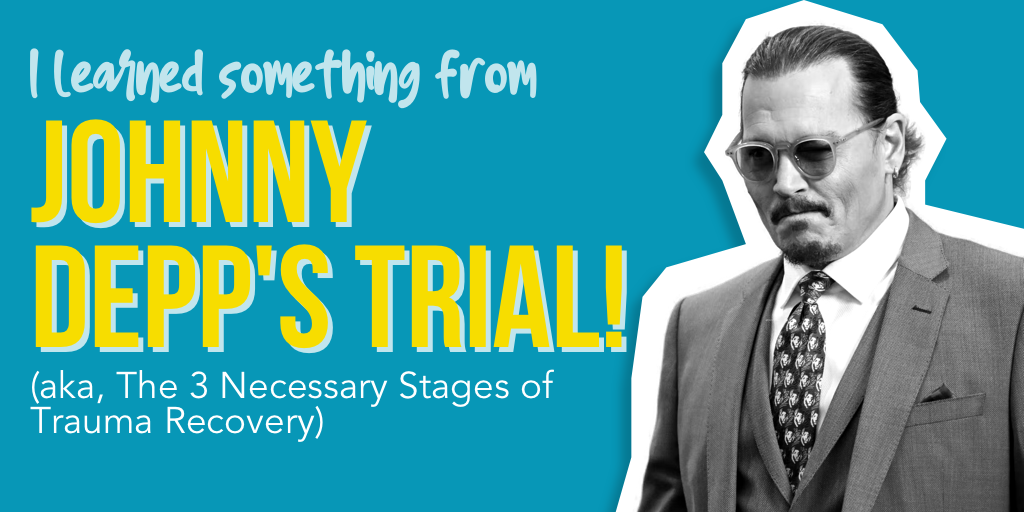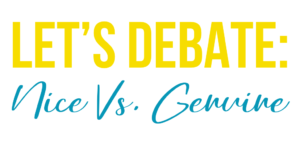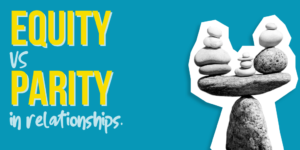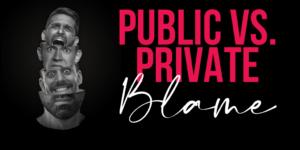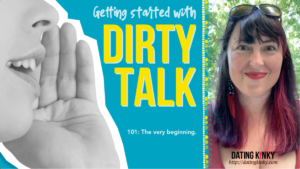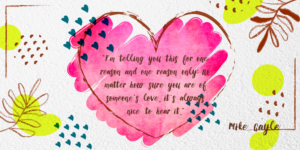I did. And I’ve also laughed. Hard. Not because of Heard and Depp’s situation. That’s not funny. I’ve been there, in a mutually abusive relationship and I’ve felt trapped and I’ve done things I’m not proud of in retrospect.
That’s just sad.
And a bit horrifying.
However, the jockeying of lawyers and experts? That’s laughable.
And in this video where Dr. Shannon Curry is on the stand, I realized something perfect and pure and beautiful in thought that I did not realize before.
It’s at the 2:50 minute mark.
Transcript (of the important bit)
Lawyer:
You testified that some of the professionals involved in this case had to take their patients at her word. What did you mean by that?
Dr. Shannon Curry:
So, when you’re providing therapy, you’re in a very different role than an examiner. When you’re the forensic examiner, you’re really just looking at data to make a decision. When you’re a therapist, you’re an advocate for your client’s well-being, and in fact, it’s considered extremely unethical for a treating provider to ever provide opinion testimony, like I’m providing because it’s so well known in our field that you’re going to have an automatic bias for your client.
It’s almost a sense of protection, advocacy, wanting their best, which is why we also know that it is very inappropriate to convey any sort of opinion about whether a crime occurred, whether abuse occurred. We can certainly believe our clients.
We can support them in their therapy and take them at their word, but when giving opinions and consultations, we have to be very, very cautious, and really only provide the facts. We would state things in terms of, “My client did report this…,” “I saw this…,” “Here was our treatment plan…,” “Here was the diagnoses…”
We’re taught, we’re trained, to stay away from making any sort of opinions, understanding that most of the time and most of Ms. Heard’s providers were just treating Ms. Heard. They had never so much as done an initial evaluation or initial interview with Mr. Depp, and gotten his whole life story or his symptoms, or his side of any of it.
And they’re going to be advocating and the treatment relationship is about helping your client achieve well-being, not about making formal psychological or psychiatric opinions.
—
This clip slapped.
Because I immediately understood something that I’ve been wrestling with being able to word properly for years.
And later, in a conversation with the beautiful and brilliant @MsKissyListener, we further clarified. It’s so simple to me, now:
Therapy: Listen and believe. Advocate for your client.
Forensic/Investigation: Gather and look at data for patterns and tells, search for objective truth.
Coaching: Give them the tools to move towards their goals.
That last one, the coaching, was our addition, based on the conversation we were having.
But the first two…I’ve been in the middle of both of those as both the victim and as the party receiving reports.
And I’ve written about it from both sides.
And whenever I write about one side, I’m lambasted by the other side for not doing it right. And I’ve finally realized that it depends on the hat you’re wearing.
Let me explain.
I’ve been in an abusive relationship myself, as I noted above.
I’ve also been trained and volunteered with people who have suffered from relationship abuses.
I’ve both taken consent violations and supported the victim and I’ve had to investigate reports with a critical eye towards discovering what objectively happened. I do this day in and day out through my work in my local and online communities.
(I’ve also spent many years of my life in coaching positions.)
In my own life, I’ve written that healing from abuse for me required taking responsibility for the years that I suffered. I had to go over the relationship in my mind, and understand that I could have left many times, and that I did not—not to blame myself, I did what I thought was best at the time—but to show my now and future self the options I can take moving forward.
To reclaim my power.
But when I’ve written about that, I’ve been given the “Victims cannot take responsibility! That’s traumatizing to them! You are being harmful even suggesting it!” spiel, with loud voices shouting out that it CANNOT be done any other way.
Those voices are in therapist mode.
When I speak about taking responsibility, I am in investigation mode.
And BOTH are necessary for healing and forward movement, along with coaching.
Let me explain.
When someone is raw from their abuse and hurting, they 100% need to be believed, cared for, advocated for, and sheltered. Anyone who volunteers in intake and shelters and hotlines is trained in this.
This is non-negotiable.
Moving forward into life, healing often requires a way to reclaim the power that was taken from them, and this is where the guided investigation comes in; a look back over various situations where the victim could have made a different choice based on self-advocacy and protection, and it would have changed the course of their life.
The first time my husband stole money from my wallet and lied about it…
I felt violated.
But instead of standing up for myself and making a big stink, I just caved. After all, I wasn’t SURE the two $100s were in there, right? Maybe they got left somewhere?
And that laid the foundation for his taking money from me, lying, and me believing it, but not really.
From my wallet and lying. I believed him, but not really.
From my pockets and lying. I believed him, but not really.
From our accounts and lying. I believed him, but not really.
From my account and lying. I believed him, but not really.
Taking my bike and selling it, then saying it was stolen. I believed him, but not really.
And numerous other shenanigans.
I found myself hiding money in places I knew he wouldn’t find it. Then, I couldn’t remember either, and I was finding bills in books years after I left him. I put money into bonds, and hid them so well, I never found many of them again.
I was accepting his lies, because of “love,” and because of my fear.
But if you had tried to confront me with the truth or facts—in the middle of that or even right after it ended—from a place of investigation? You would have harmed me.
What I needed at the time (and did not have) was someone to hear me, to reflect back to me my experiences, and to help me feel safe somewhere, with someone.
I didn’t at that time need someone to tell me that I had power and I was responsible for what was happening by accepting it.
Even though that was true.
I was not to blame.
My abuser was 100% to blame for his actions. For his choice to steal, to lie, and to abuse me in all the ways he did.
I was responsible for my own well-being, though, and I failed myself.
But that needed to come AFTER I was out. After I was safe. After I had taken the one step of accepting I was being abused and then putting myself first.
Only after I realized my escape, could I heal.
I was my own therapist, sadly. I never did reach out to anyone. I never did get that help. I didn’t have friends there for me—I was isolated even from my family in many ways.
I was my own forensic/investigation team. I didn’t reach out to anyone for that, either. I didn’t get that help. I had no one to reach out to to help me process.
I was also my own coach. As I began making friends, I didn’t want to burden them with my shame and the reality of who I was, so I chose to be better. And I did.
But I also went back and I gave back to others. I volunteered. I learned. I grew.
For me.
For them.
For YOU.
It took all of those stages to get where I am today: therapy, investigation, coaching.
And most people will excel in different areas in their lives.
I wrote a while back, “I am not your ‘safe’ friend.”
And what I was really writing is that I am not naturally a therapist. Because of what I went through, because of who I am, and the life I have lived that has shaped me, I do not naturally give that empathy and succor.
I do not see the need for it in others, especially if they, like me, mask their pain.
I do recognize the need for it, though. And I applaud all victim’s advocates who stand up and speak for their clients, their friends, their loved ones, and strangers.
I applaud you.
And for those of you who stand up after abuse, I applaud you, too. (https://datingkinky.com/blog/stand-up/)
I am an investigator and a coach.
I like to right wrongs and help people move towards positive goals and lives. That is where I live and write on a daily basis.
I am not a surgeon or a caretaker (but if you need one, I can refer you). I am physical therapy and rehabilitation (which can often feel brutal). I’m the bad-ass trainer helping you back to better-than-before.
And ALL of these roles are necessary: therapist, investigator, coach.
And I learned this way of thinking through the Johnny Depp trial.
What are your thoughts?
Do you agree with Dr. Shannon Curry’s assessment of the terms? Do you agree with my addition of coaching as a third term/stage?
Have you experienced the different stages yourself?
Where do you find yourself naturally, when others come to you?


